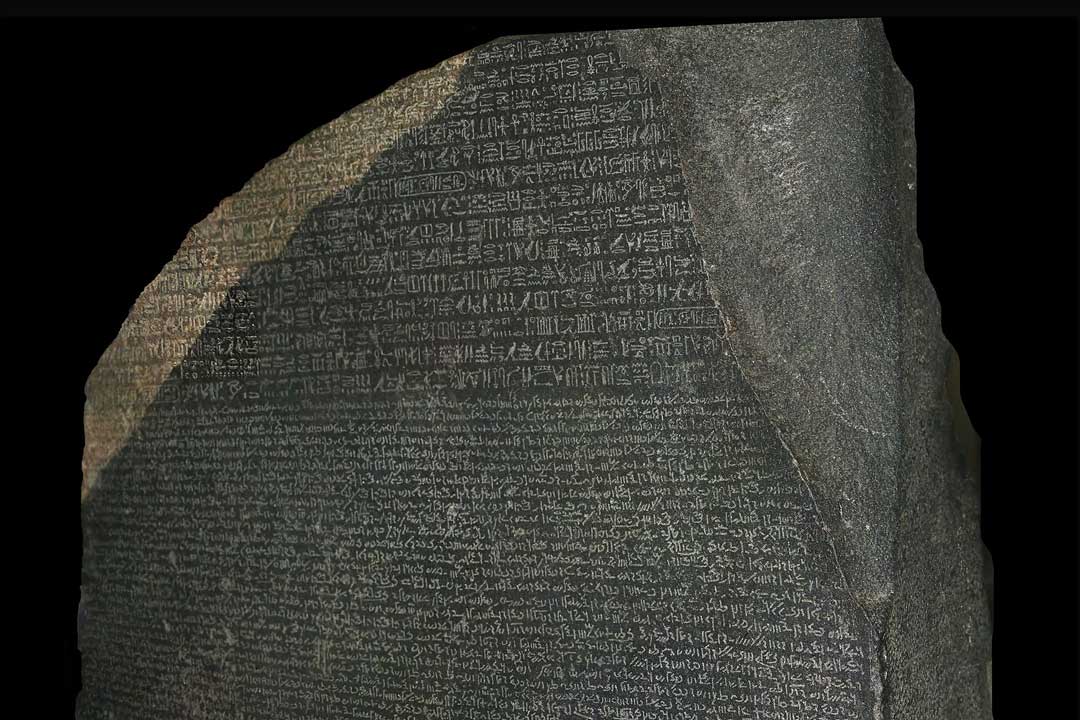Mysteries of the Rosetta Stone
What You Didn't Know
Image courtesy of Hans Hillewaert
Most people know of the Rosetta Stone, but may not know why one of the most important archaeological finds in human history was constructed.
During the reign of Alexander the Great, he marched his armies into Egypt “liberating” it from the Persian Empire in 332 B.C.. After Alexander’s death in 323 B.C., Egypt was gifted to his trusted general Ptolemy I. The Egyptian kingdom was subsequently passed down throughout his lineage to Ptolemy V.
Relations between the Ptolemaic line and the Egyptian people were initially manageable. But as Greek colonists migrated to Egypt from 332-180 B.C., and economic conditions worsened, Egyptians seemed to have had enough of approximately 300 years of occupation by foreign invaders.
Egyptians seemed to have had enough of approximately 300 years of occupation by foreign invaders
Egyptian soldiers who gained military experience serving in Ptolemy V’s army left their posts as resentment toward their Hellenistic rulers gained momentum. The soldiers, possibly wearied of being second-class citizens, actively pursued the return of an Egyptian pharaoh.
And so began “The Great Revolt”!
The Egyptian revolt was founded in Upper Egypt near Thebes, where a new pharaoh of Egyptian lineage (Ankhmakis) was proclaimed. War extended even as far as the Nile Delta as Egyptians fought for their independence.
The Rosetta Stone was part of a series of carved steles erected by Ptolemy V throughout Egypt. These steles, chronicling Ptolemy V’s victory over Egyptians in the Nile Delta, were part of a far-reaching propaganda machine to promote the Hellenistic ruler’s interests. Because Hellenistic Egypt’s population was multi-lingual, the steles were written in three different script including Egyptian hieroglyphics, Egyptian Demotic, and Ancient Greek.
In the end, the Greeks captured the newly established Egyptian pharaoh Ankhmakis. Two to three years later, the rebels in Lower Egypt surrendered and then were put to death.
In keeping with a great conqueror, Ptolemy V had himself declared a god on the Rosetta Stone so that no one would question his legitimacy again.
So, because of Ptolemy V’s efforts to suppress a rebellion, we are able to read hieroglyphs today.
I have used a lot of similar research as a foundation for my fictional writing. If you are interested in the time of Alexander the Great and dark historical fantasy, you will love Gates the Hours Keep.
If you want to know more about modern archaeology that supplements the insights gained from the Rosetta Stone, please reference Archaeology.org or lib.berkeley.edu
A Part Of The
Way Back Wednesday
Series
